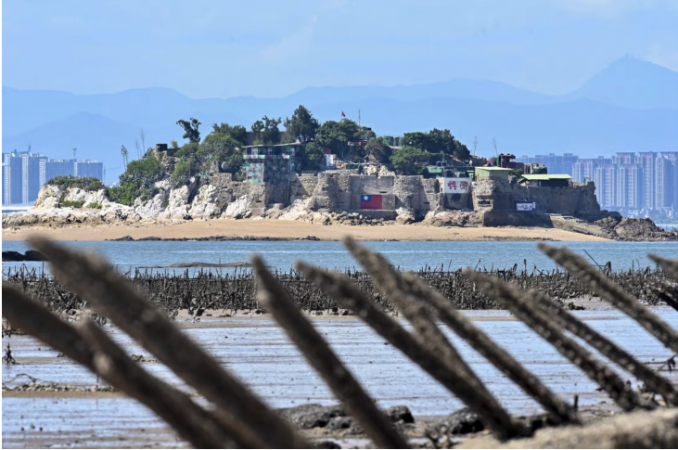
BEIJING: The risk of a military conflict on the Taiwan Strait has increased after Taiwan fired first shots to scuttle a drone belonging to mainland China, according to military affairs analysts.
He believes that neither mainland China nor Taiwan will back down from their positions, and the situation is likely to worsen.
Taiwan's defense ministry said on Wednesday that it would exercise its right of self-defense and counter-attack if drones threatening China's mainland security did not leave Taiwan's territory after the warning.
The ministry had earlier said that three civilian drones took off at three different locations in the airspace over Taiwan's Qomoy archipelago, also known as Kinmen. Three warning shots were fired.
One took off on Erden, an offshore island in Fujian province, 4 kilometers (2.5 mi) from the mainland city of Xiamen. Taiwan fired ammunition at the drone, which fled towards Xiamen.
According to Fu Qianshao, a retired People's Liberation Army (PLA) Air Force equipment specialist, firing is considered a military act.
"Shooting directly at a drone is a military action, whether it hits the drone or not." He said, 'Tension has increased.
When the mainland Kuomintang was defeated by Communist Party forces and fled to Taipei at the end of the civil war in 1949, China and Taiwan were separated.
Beijing considers the island to be part of China and has never ruled out using force to control it. Most countries, including the United States, do not recognize Taiwan as an independent state. Washington, on the other hand, opposes any attempt to seize the island by force.
Following the visit of mainland US House Speaker Nancy Pelosi to Taiwan, China has increased drills against the island. Washington said Pelosi's visit - the most senior US politician to visit the island in 25 years - did not signal a change in US policy toward Taiwan, but Beijing interpreted it as support for the pro-independence camp.
"The mainland will continue to take appropriate measures," Fu said.
"If there are more visits to Taiwan [by foreign politicians] and closer ties between Taiwan and the US, more mainland drones will be deployed." The consequences of Taiwan's first shot are now becoming apparent."
If Taiwan continues to fire, the mainland will respond "strongly", he said.
According to Yu Gang, a retired PLA colonel, the shooting was a warning, but the tension could still be controlled.
"The rifles and anti-aircraft machine guns they used were ineffective against drones." "Those were warning shots, and they served as a warning signal for mainland drones," he explained. "The Taiwanese army kept the situation under control."
He predicted that Beijing would continue to focus on drone reconnaissance flights, undermining the confidence of the Taiwanese military.
Taiwan has repeatedly reported Chinese drones flying around the outer islands of the strait. Last week, close-up photos and videos of Taiwanese soldiers at a checkpoint in Qomoy flooded mainland social media. Taiwanese officials confirmed that the footage was captured by a civilian drone on 16 August.
Taiwan's military said on Monday that its four-step protocol for drone encounters includes "warning of fire, reporting an intrusion, dispersing the drone and finally taking it down".
The Chinese Foreign Ministry in Beijing dismissed Taiwan's complaints about the drones as "insignificant".
Another US delegation lands in Taiwan rising tensions with China
PLA adopts nuclear deterrence to end foreign meddling in Taiwan